VET APPROVED

The information is current and up-to-date in accordance with the latest veterinarian research.
Learn more »It’s not uncommon for pet owners to group animals together, thinking that they can all eat the same things. Even though dogs and cats are both carnivorous companion animals, they have different nutritional needs and shouldn’t have the same food.
The same goes for rodents. Rats, mice, gerbils, hamsters, and guinea pigs may seem similar, but they all have unique dietary needs. Guinea pigs shouldn’t have hamster food (or vice versa), as it doesn’t offer the optimal nutrition they require for good health.

Why Can’t Guinea Pigs Have Hamster Food?
Though hamster food has fiber and vitamins, it’s not balanced appropriately for guinea pigs.
Guinea pigs are true herbivores that thrive on low-calcium hay and small amounts of high-fiber commercial food. Vitamin C should be given every day to ensure that your guinea pig has optimal nutrition. Good quality extruded guinea pig pellets suitable to their age will contain adequate vitamin C but can be supplemented by fresh veg and fruit for variety.
Most animals can manufacture their own vitamin C if they don’t get it through their diet. Guinea pigs, like humans, can’t make vitamin C and need to get it through their diet. Most hamster food doesn’t contain enough vitamin C to satisfy a guinea pig’s needs.
Overall, it’s best to avoid hamster food and give your guinea pig only appropriate commercial cavy food, fresh vegetables, and low-calcium hay like Timothy.
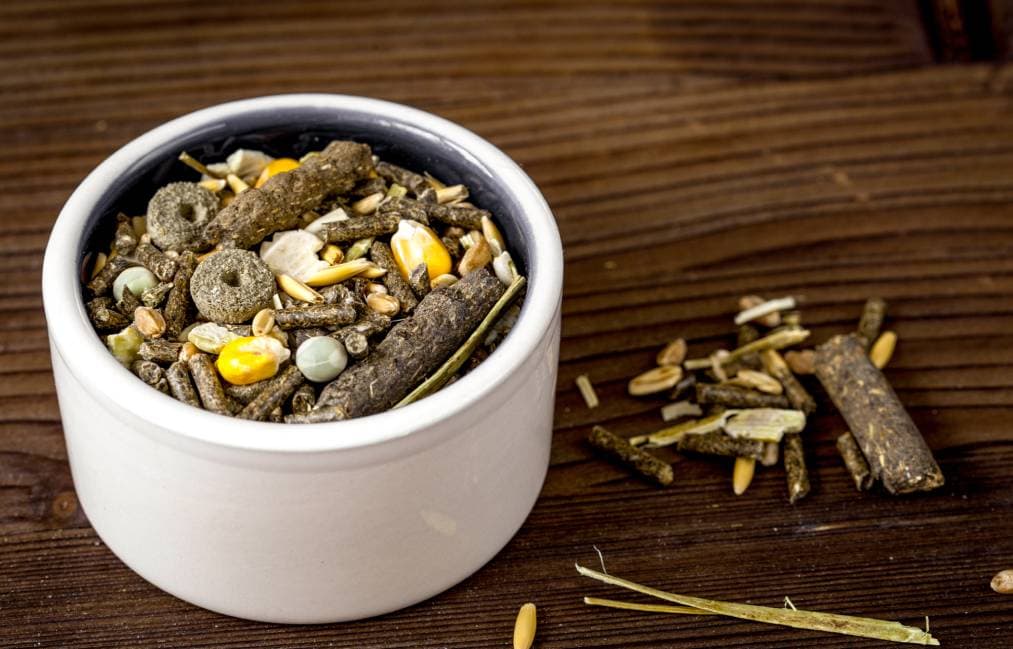
Vitamin C Requirements & Deficiency in Guinea Pigs
Vitamin C is essential for the development and maintenance of skin, joints, and mucosal surfaces, such as gums, in guinea pigs. It also plays a role in the healing of wounds and the development of scar tissue.
Guinea pigs need between 10 and 50 mg of vitamin C each day, depending on the individual animal. While they do get some vitamin C from fresh vegetables and fruits, guinea pigs couldn’t consume enough to get the vitamin C they need.
Guinea pig pellets contain vitamin C, but it’s not a stable compound—it oxidizes quickly. This means that your guinea pig could eat plenty of food but still not get its minimum daily requirement. This tends to happen if the food has been open for a while or purchased in a large volume meaning it takes your piggy a long time to get through the whole bag of food. It is recommended that you do not use a bag of food if it has been open for 3 months, after this time the vitamin C is starting to degrade.
Without vitamin C, guinea pigs may develop skin and coat problems like a rough coat, diarrhea, inappetence, swelling in the feet or joints, ulcers on the gums or skin, and pain with movement.

Conclusion
Guinea pigs have specific dietary requirements, like all animals. Feeding another rodent food, such as hamster food or rat food, offers a different balance of nutrients that could negatively impact your guinea pig’s health. If you have any questions about your guinea pig’s diet, speak to your vet.
See also:
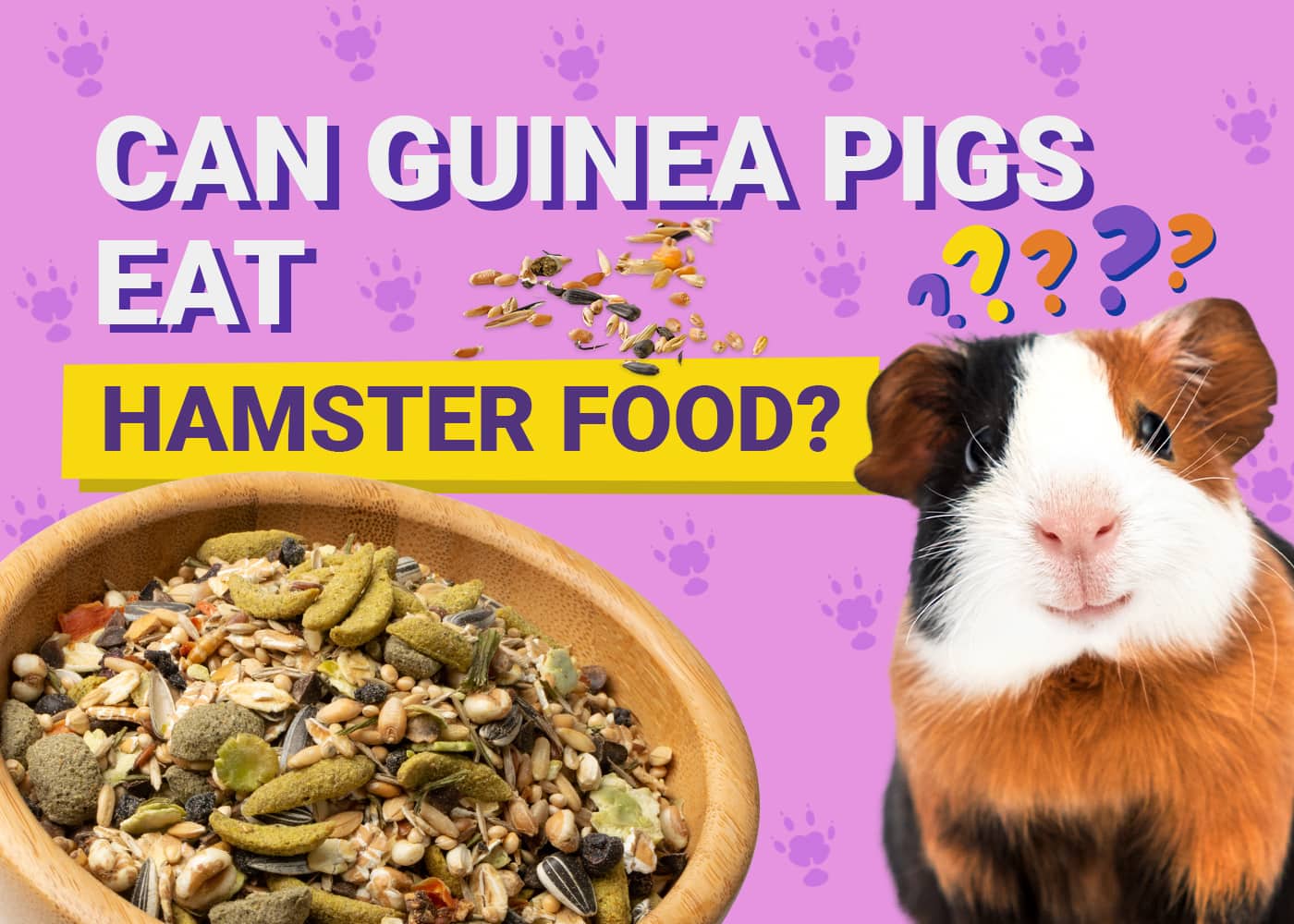





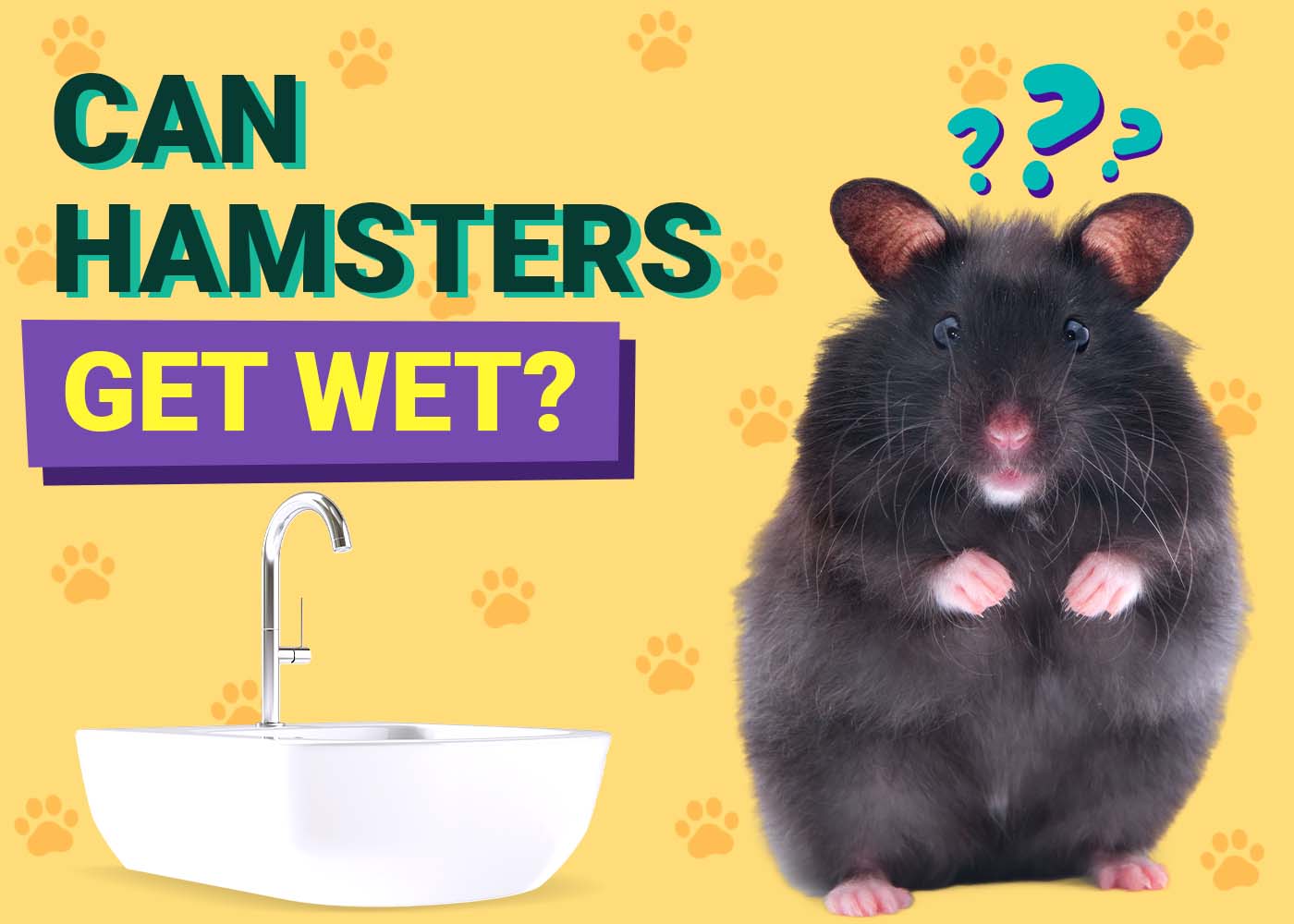
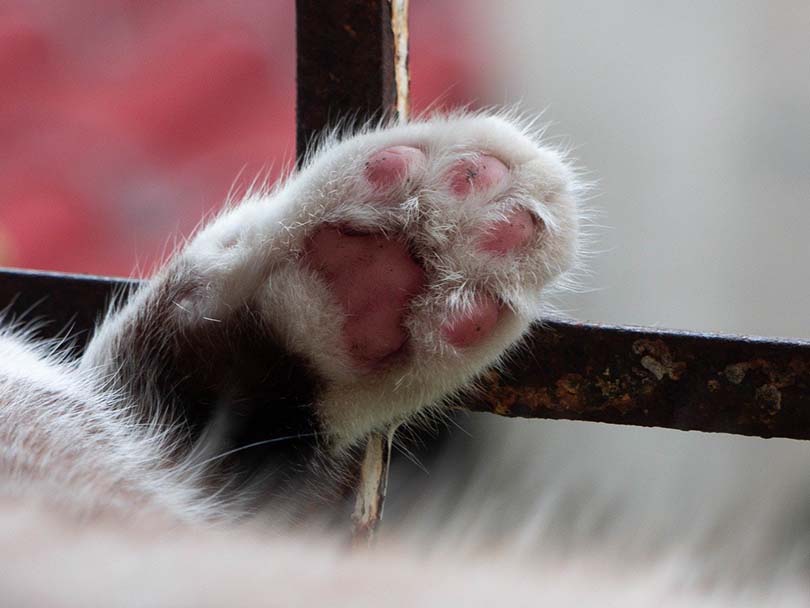
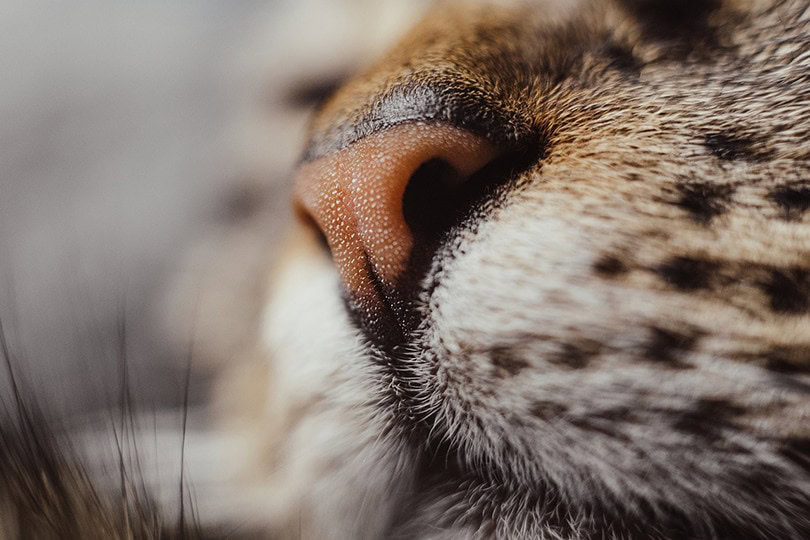


2 Responses
I fed my guinea pig some food meant for gerbils and hamsters for two days. Will it hurt him. He also had vegetables.
Dear Karen,
thank you for your question. As mentioned in the article, guinea pigs and hamsters have different nutritional needs and their vitamin C requirements are especially important. If your guinea pig has eaten enough vegetables in those two days there shouldn’t be too much of an issue, however, we strongly recommend you to provide your guinea pig with species-appropriate diet as soon as possible. Although two days of hamster/gerbil food shouldn’t hurt your guinea pig, it is not suitable for them.